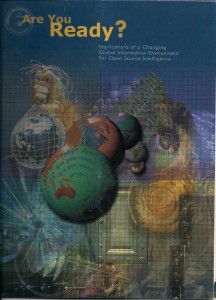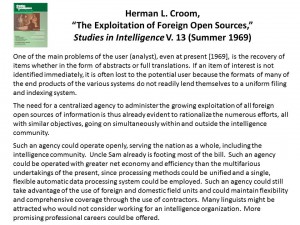I recommend that this book be read together with John Perkins, Confessions of an Economic Hit Man and William Greider's, The Soul of Capitalism: Opening Paths to a Moral Economy. As a pre-amble, I would note that a Nobel Prize was given in the late 1990's to a man that demonstrates that trust lowers the cost of doing business. Morality matters–immorality imposes a pervasive sustained, insidious, long-term, and ultimately fatal cost on any community, any Republic, and that is the core message of this book that most reviewers seem to be missing.
Any student of national security can tell you that one of the most important sources of national power is the population, followed by the economy, natural resources, and then the more traditional sources of national power: diplomacy, military, law enforcement, and government policies generally.
What this author makes clear is that our population has become a cheating population, one that cheats in school, cheats their employer, and cheats their clients (lawyers, accountants, doctors, all cheating). Such a population is literally undermining national security by creating false values, and undermining true values. Some simple examples: an estimated $250 Billion a year in individual tax avoidance; an estimated $600 Billion a year in theft from employers; an estimated $250 Billion a year in legalized corporate tax avoidance and investor fraud; and an additional $250 Billion a year in legalized theft form the individual taxpayers through Congressional support for unnecessary and ill-advised “subsidies” for agriculture, fishing, and forestry, as well as waivers of environmental standards that ultimately result in long-term external diseconomies…
At root, the author observes that pervasive cheating ensues from the perception by the majority that “everyone does it” and that the rules are not being enforced–that “the system” lacks legitimacy. In other countries, illegitimacy might lead to revolution, a revolt of the masses. In the USA, still a very rich country, the poor are cheating on the margins while the rich are looting the country, and we are not yet at a “tipping point” such as a new Great Depression might inspire.
This is a thoughtful book, and it does not deserve the negative comments from those whom the book most likely is describing all too well. Cheating diminishes trust and reduces value. America has become corrupt across all the professions, within Congress, within the media, within the political level of government (the civil service remains a bastion of propriety).
What price freedom? What price the Republic? You may or may not choose to agree with this author's diagnosis and prescription, but in my view, he gets to the heart of the matter. It's about integrity. We've lost it.
See also, with reviews:
The Battle for the Soul of Capitalism: How the Financial System Underminded Social Ideals, Damaged Trust in the Markets, Robbed Investors of Trillions – and What to Do About It
The Fifty-Year Wound: How America's Cold War Victory Has Shaped Our World
The Global Class War: How America's Bipartisan Elite Lost Our Future – and What It Will Take to Win It Back
War on the Middle Class: How the Government, Big Business, and Special Interest Groups Are Waging War onthe American Dream and How to Fight Back
The Working Poor: Invisible in America
Off the Books: The Underground Economy of the Urban Poor





